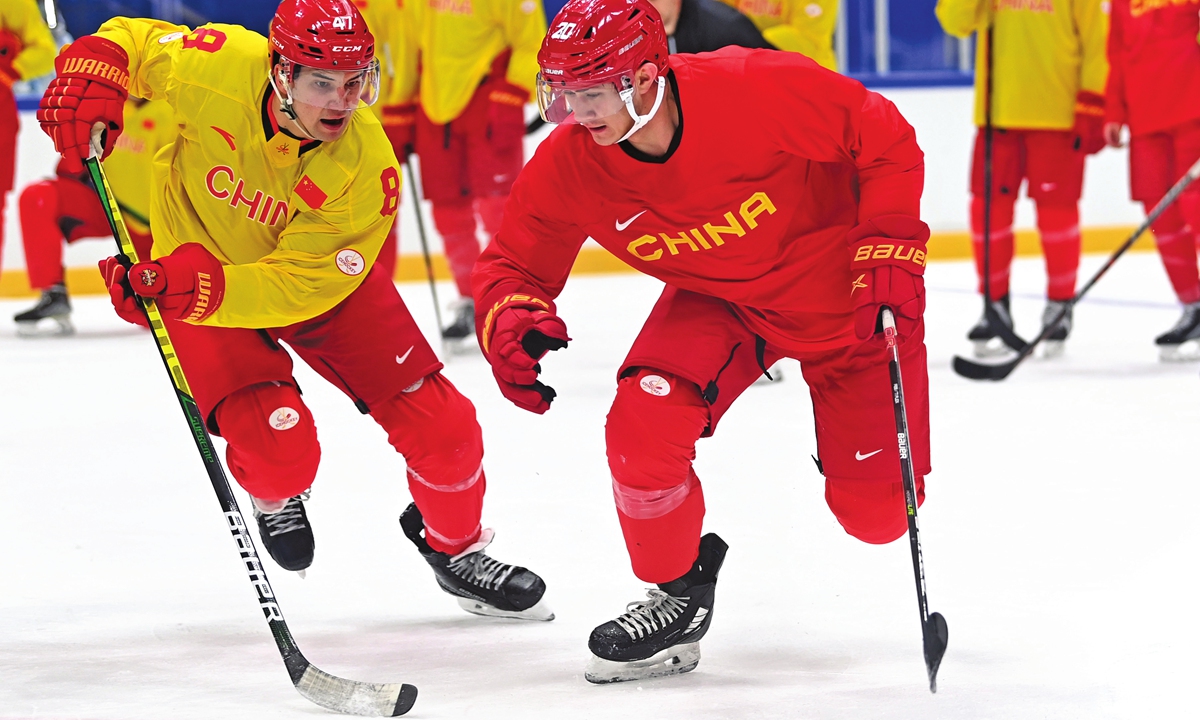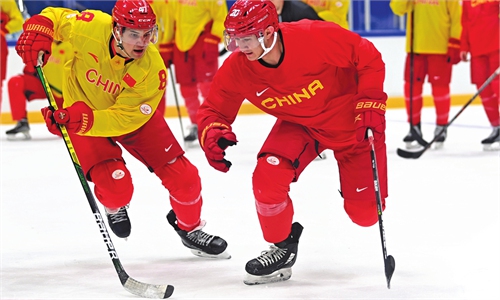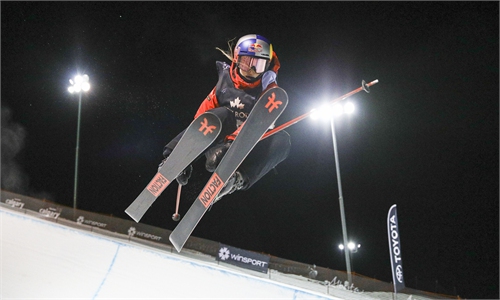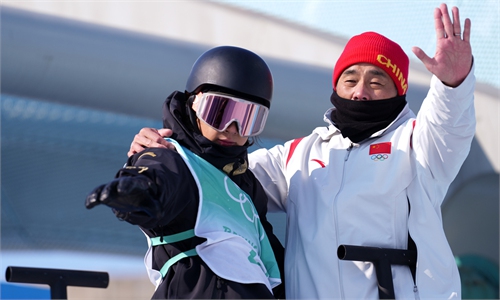Intl Winter sports talents contribute to Chinese team’s best ever performance in history at Beijing Games

Players of Chinese men's hockey team at a training on January 29, 2022 Photo: VCG
The Chinese sports delegation had the best ever performance in history at the Beijing 2022 Winter Olympic Games after years' efforts in soliciting international Winter sports talents with a perfect mechanism and favorable conditions, said an article written by the Communist Party of China (CPC) China's Central Commission for Discipline Inspection (CCDI) published on Sunday.
The Chinese Olympic Games delegation ranked top 3 on medal count with its record-breaking nine gold medals and 15 medals in total. They also made history by competing in all the events in 15 disciplines across seven sports at the Beijing Games, compared with 53 events in 12 disciplines across five sports in the 2018 Winter Olympics in Pyeongchang.
It was a difficult situation for Winter sports in China because it started late, had weak foundation and insufficient talent reserve. Without international cooperation, it would have been difficult to achieve rapid development, the article said.
Stressed by the nation's leader to realize innovation of the training, selection, incentive and guarantee mechanism of competitive sports talents and the management system of the national team, China has been extending "olive branches" to international and domestic ice and snow sports talents with perfect system and favorable conditions.
The naturalized Chinese athletes of this Winter Olympics all displayed the charm of the descendants of the Chinese nation despite of their different backgrounds.
From freeskier Gu Ailing of Team China who finished her first Olympic journey with two gold medals and a silver in three events, to Canadian-born ice hockey player Ye Jinguang (Brandon Yip), who led the Chinese men's ice hockey team which competed for the first time at the Olympic Games, naturalized athletes took an active part in the Beijing Games and have played a positive role in supplementing talents and improving the level of Team China despite of Chinese sports fans' mixed feelings about them and Western media's attacks.
Ye said on Sina Weibo that "if a Chinese ice hockey player will stand on the podium in 20 years and say he plays the sport because he 'watched the Games in 2022.' That will be the success for our generation."
Many naturalized athletes have vowed to promote the development of Winter sports in China.
In a developing environment where China is internationally competitive and attractive, more and more naturalized athletes are choosing to continue their long-term development in China afterward.
Apart from excellent athletes, excellent coaches were also indispensable for China to achieve this swift development. A total of 51 foreign coaches from 19 countries and regions including the US, Canada, Russia, France and Japan played an important role for Team China.
China's short track speed skating team claimed Team China's first gold medal at the Beijing Games with the contribution of South Korean skaters Kim Sun-tae and Viktor Ahn Hyun-soo being the chief and technical coaches for the Chinese national team.
Other foreign coaches who led the Chinese team to "break the ice" include head coach of the Chinese national curling team Peja Lindholm from Sweden and Norwegian legend Ole Einar Bjoerndalen as the head coach of the Chinese nation biathlon team.
These foreign coaches are not only the think tank for the Chinese team, but also strong technical supporters by providing a slew of technical information and parameters, helping to choose the best equipment, and establish business relations between the Chinese team and the international top equipment service providers through their own contacts.
The foreign coaches together with the Chinese athletes have been conveying China's voice to the world and creating a good international development environment for China's Winter sports, according to the article.
Global Times



